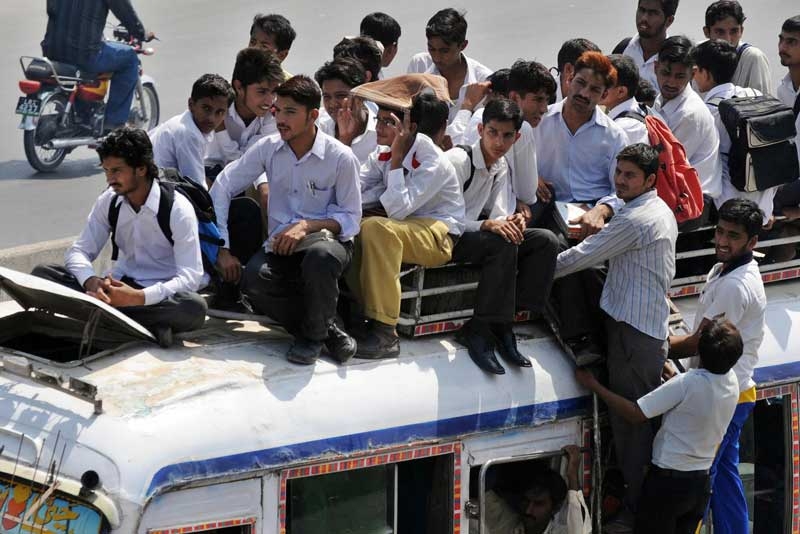Pakistan 2020: Major New Report Outlines Steps to Stability

Asia Society Pakistan 2020 Study Group Urges Progressive Policy Shifts in Pakistan
(New York, May 18, 2011) Preventing Pakistan from further deterioration will require a long-term commitment from the government of Pakistan, the United States, and other international stakeholders to promote genuine reform in the coming decade. According to a report released May 18 by the Asia Society Pakistan 2020 Study Group, this commitment must be enshrined in a comprehensive package of policies aimed at promoting sustainable constitutional democracy, credible and effective rule of law and law enforcement, a significant expansion and improvement of the education and health sectors, and a peaceful resolution of the conflict with India. Economic growth and foreign investment in Pakistan arguably will follow such progress.
The Group’s report, Pakistan 2020: A Vision for Building a Better Future, emphasizes that without the urgent adoption of both remedial and revolutionary measures in all of these areas, the challenges facing Pakistan — including terrorism, religious extremism, underdevelopment, and chronic political instability — will become more serious over time. While Pakistan’s path will be defined and driven by internal and regional factors, the international community, especially the United States and its allies, must continue to play a supportive role.
The Pakistan 2020 Study Group is the first group of its kind in recent years to include a significant number of leading experts from Pakistan and the United States—30 in all—representing a range of sectors. Members include former diplomats, military leaders, and intelligence officials, journalists and media personalities, economists and development specialists, scientists, and experts in the fields of health, education, governance and law, and natural resources and the environment.
The report was written by the Asia Society’s Bernard Schwartz Fellow, Hassan Abbas who served in the administrations of Prime Minister Benazir Bhutto (1994–1995) and President Pervez Musharraf (1999–2000).
"Pakistan faces enormous challenges in the years ahead,” said Abbas. “But the people of Pakistan have shown a remarkable resilience in addressing some of these challenges, and there is a high potential for reform and development in the country. Progressive and constructive policy shifts in Pakistan, as suggested throughout the Study Group’s report, are what truly matter in the long term.”
As facts about the killing of Osama bin Laden by U.S. forces in Pakistan come to light, relations between Islamabad and Washington and its allies will be severely tested. The United States and the broader international community have an extremely important stake in helping to set Pakistan on a steady path. Ultimately, a stable Pakistan is the only effective way to tackle militant sanctuaries in the country and bring a durable peace to South Asia.”
The full text of the report is available at AsiaSociety.org/Pakistan2020
For media inquiries, contact our New York press office at 212-327-9271 or [email protected]
— Members of the Pakistan 2020 Study Group —
Hassan Abbas, Bernard Schwartz Fellow, Asia Society
Samina Ahmed, South Asia Project Director, International Crisis Group
Graham Allison, Director, Belfer Center for Science and International Affairs, Harvard University
Peter Bergen, Journalist; Director, National Security Studies Program, New America Foundation
Christopher Candland, Associate Professor of Political Science, Wellesley College
Stephen Cohen, Senior Fellow for Foreign Policy Studies, 21st Century Defense Initiative, Brookings Institution
Suzanne DiMaggio, Vice President, Global Policy Programs, Asia Society
Asad Durrani, Lieutenant General (Ret.), Pakistan Military, and Former Director General of Inter-Services Intelligence; Former Pakistan Ambassador to Germany and Saudi Arabia
C. Christine Fair, Assistant Professor, Edmund A. Walsh School of Foreign Service, Georgetown University
Asher Hasan, Founder and CEO, Naya Jeevan
Andrew Hess, Professor of Diplomacy and Director, Fletcher School of Law and Diplomacy, Tufts University
Pervez Hoodbhoy, Chairman and Professor, Department of Physics, Quaid-i-Azam University
Mir Ibrahim, Founder and CEO, Geo TV
Asma Jahangir, President, Supreme Court Bar Association of Pakistan
Jehangir Karamat, General (Ret.) and Former Chief of Pakistan Army; CEO, Spearhead Research Institute
William Milam, Senior Policy Scholar, Wilson International Center for Scholars; Former U.S. Ambassador to Pakistan
Adil Najam, Director, Frederick S. Pardee Center for the Study of the Longer-Range Future, Boston University
Nigar Nazar, Cartoonist; CEO, Gogi Studios Ltd.
John D. Negroponte, Vice Chairman, McLarty Associates; Former U.S. Deputy Secretary of State
Sania Nishtar, Founder and President, Heartfile
Amir Rana, Director, Pakistan Institute for Peace Studies
Ahmed Rashid, Journalist and Author; Former Correspondent, Far Eastern Economic Review
Eric Rosenbach, Faculty Affiliate, Belfer Center for Science and International Affairs, Harvard University
Babar Sattar, Founding Partner, AJURIS Advocates and Corporate Consultants
Ayesha Siddiqa, Political Analyst; Author, Military Inc.: Inside Pakistan’s Military Economy
Shirin Tahir-Kheli, Former Senior Director for Democracy & Human Rights, U.S. National Security Council
Frank Wisner, Former U.S. Ambassador to India and U.S. Undersecretary of Defense for Policy
Moeed Yusuf, South Asia Advisor, Center for Conflict Prevention and Analysis, United States Institute of Peace
Mariam Abou Zahab, Lecturer, Institut National des Langues et Civilisations Orientales
Mosharraf Zaidi, Columnist, The News; Policy Analyst
Nasim Zehra, Director, Current Affairs, and Host, Policy Matters, Dunya TV
Photo: Pakistani students sit on top of an overloaded mini bus as they ride home from school in Lahore on Sept. 8, 2009. (Arif Ali/AFP/Getty Images)